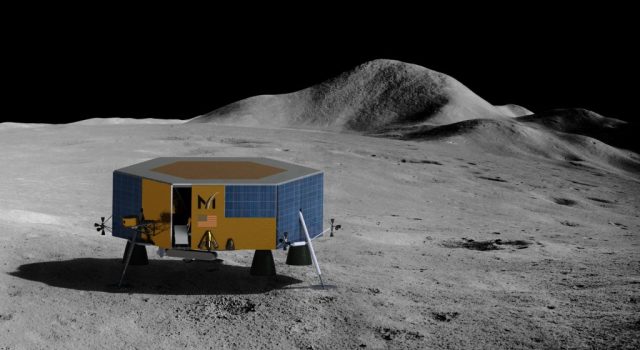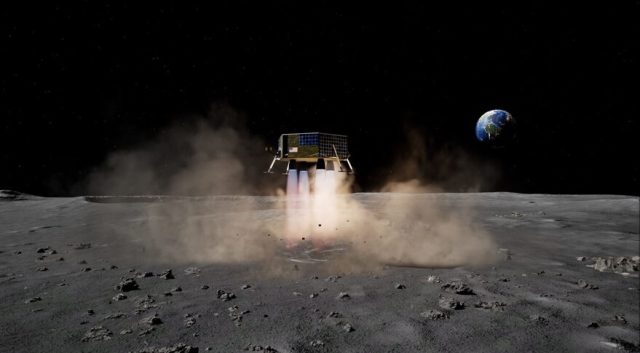Masten Space Systems is forced to postpone the launch of its lunar lander from 2022 to 2023. One of the reasons was the pandemic.
The publication SpaceNews reported that Masten Space Systems is postponing the launch of its lunar mission for almost a year. Masten said that its lander, which was planned to be launched in December 2022,will be launched in November 2023. The postponement of the deadline was associated with the coronavirus pandemic and industry problems.
"We have all been affected by the pandemic in one way or another, and the aerospace industry is no exception," said Dave Masten, founder and chief technology officer of Masten Space Systems.
Masten received a NASA contract under the Commercial Lunar Payload Services (CLPS) program in April 2020. The cost of the agreement is $ 75.9 million. Masten will deliver a set of demonstration scientific and technical payloads to the Moon for the US Space Agency. The contract for the launch of the lander, which the company calls XL-1, was awarded to SpaceX.

XL-1
Image source: Masten Space Systems
The landing site of the XL-1 module will be the area of the large impact crater Haworth, located near the south pole on the visible side of the Moon. "Our team continues to make progress in the development of XL-1 and achieve important milestones that will help ensure a safe and accurate landing near the resource-rich Haworth crater," says Dave Masten.
Masten Space Systems is a small company from Mojave (California), working in the aerospace industry. It was founded in 2004. As of 2020, the company had more than 80 employees.
CLPS can play an important role in NASA's Artemis program, aimed at mastering the Earth's satellite and landing astronauts on its surface. They want to carry out a test unmanned launch to the moon in the fall of this year. The first manned mission under the program — Artemis-2- will take place no earlier than September 2023. It will take place without landing on the surface of the satellite: the timing of sending the "first woman and the next men" to the moon is still completely unclear. Under an optimistic scenario, this is expected around the middle of the decade.
Even less certain are the plans for the development of the satellite from other countries. Recently it became known that the first flight to the moon in the history of modern Russia may not take place in 2021 and may be postponed to next year.
The country wants to use the experience gained during this and subsequent unmanned missions for the first manned flight of astronauts to the moon. [...] Russia plans to build a lunar station together with China.

